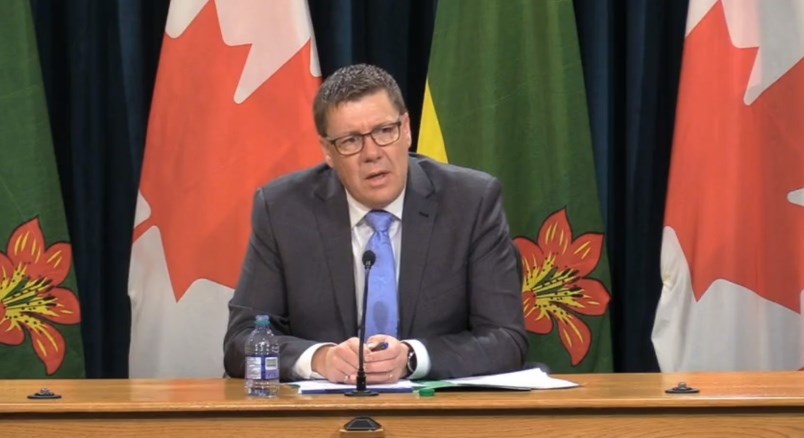As a result of the Supreme Court of Canada deciding the carbon tax is constitutional, the provincial government will be developing its own made-in-Saskatchewan carbon pricing plan.
At a March 25 media conference, Scott Moe, Saskatchewan’s premier, said the province still believes the federal carbon tax is a bad policy environmentally and economically.
“We respect that the Supreme Court has ruled. We don't agree with the ruling, but I've played enough hockey to know that we're not going to do a lot of fruitful arguing with the referees after the game is over,” he said.
“Today, our government is focused on making every effort to protect Saskatchewan families, protect Saskatchewan workers and to protect our businesses from the negative consequences of this federal carbon tax.”
The Greenhouse Gas Pollution Pricing Act allows provinces to come up with its own carbon pricing systems, as long as they meet minimum benchmarks as set by the federal government. Quebec, Nova Scotia, the Northwest Territories and British Columbia have their own systems that meet those benchmarks.
If those standards are not met, the federal government imposes its own system where it perceives gaps.
Saskatchewan’s Prairie Resilience environmental plan has a system that requires large industrial facilities like mines, pulp mills and refineries to reduce their emissions that the federal government accepted. Everything else not covered by that system had the federal carbon tax applied to it.
Moe highlighted four aspects of the carbon pricing plan it is developing.
It will see the province design its own carbon pricing system for fuel, using a system designed by New Brunswick and approved by the federal government as an example.
A greenhouse gas offset program will be developed as an option for regulated industries to meet their annual emission reduction target. Companies could buy carbon credits from farmers, ranchers, forestry operators, municipalities and other businesses that are sequestering carbon.
Electrical generation and natural gas transmission by SaskPower and SaskEnergy will see its emission rules placed under the provincial legislation, so the province can have more control over the regulations that they operate under and more flexibility in how associated carbon tax revenues are distributed.
Finally, the Saskatchewan government will ask the federal government to support the development of small modular nuclear reactors.
The opposition Saskatchewan New Democrats called for the province to develop a made-in-Saskatchewan plan much sooner, holding the position that if the federal government was going to enforce some type of carbon pricing, it would to better to have one developed in the province taking into account its special circumstances in mind instead of having one imposed by Ottawa.
Moe said he does not regret the path that was taken, fighting the federally imposed carbon tax in court.
“This is a fight that needed to happen. There's clarity that is provided today, although we don't agree with it. There's clarity that is provided today on behalf of all Canadians by the Supreme Court of Canada. I believe there's also clarity provided to the federal government,” he said.
“I will never, ever apologize for standing up for what Saskatchewan people believe.”
The premier said court costs were around the $500,000 to $600,000 mark.




